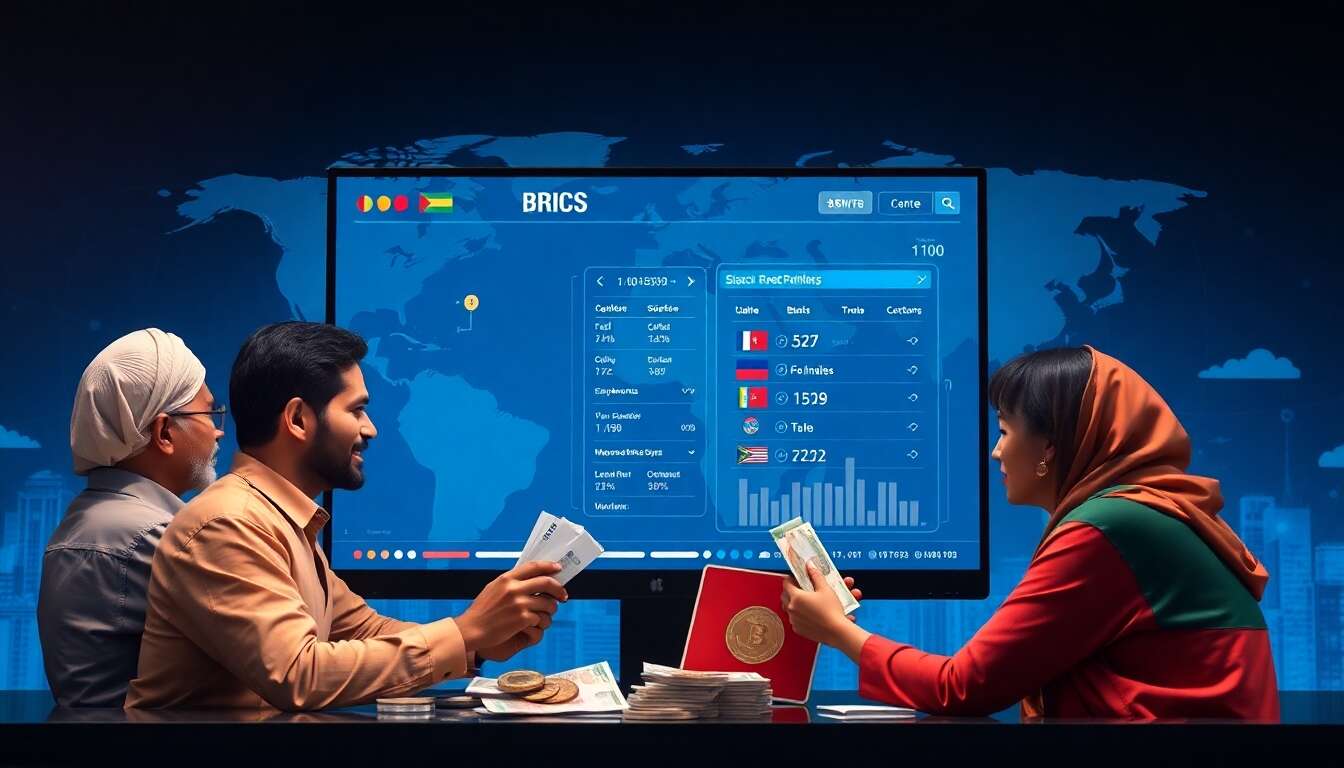The global financial landscape is in a state of flux, driven by the need for more efficient and secure transaction systems. The BRICS nations—Brazil, Russia, India, China, and South Africa—are at the forefront of this evolution, seeking alternatives to the dollar-dominated monetary order. This initiative is not just about creating a new currency system; it’s about fostering economic independence and enhancing financial efficiency through rapid transactions.
The Rise of BRICS Against the Dollar Monopoly
Historical Context
The concept of challenging the dollar’s dominance isn’t new. It traces back to the Bretton Woods agreements of 1944, which positioned the dollar as the world’s primary reserve currency. Although the system was abandoned in 1971, the influence of the dollar remains significant. Today, BRICS countries are united in their quest to establish a monetary system that reflects their growing influence in global trade.
Recent Developments and Ambitions
Since 2019, BRICS countries have been working on an innovative project known as BRICS Pay. Slated for a launch in 2025, this payment system aims to reduce reliance on the dollar by allowing member countries to settle transactions in their national currencies. This ambitious initiative underscores a major shift in the global financial landscape.
- Facilitate Rapid Transactions: Empowering seamless trades among members using local currencies.
- Diminish Dollar Influence: Reducing dependency which accounted for 58% of international payments outside the eurozone in 2022.
- Ensure Interoperability: Aligning with international standards like SWIFT and CIPS for smooth integration.
This monumental endeavor could reshape global commerce, steering us towards the economic agenda of BRICS.
BRICS Money: A Response to Economic Dominance
The Motivation Behind BRICS Money
BRICS Money represents a strategic countermeasure to the pervasive economic dominance by traditional western powers. The collective GDP of BRICS nations highlights their immense economic potential, prompting the development of a system to leverage this strength. By creating a unified platform for financial interactions, BRICS is positioned to redefine power structures in global trade.
Economic Independence
Central to BRICS Money is the notion of economic independence. The new system seeks to empower its members by providing a mechanism to conduct business without the constraints of the current foreign exchange systems. This not only fosters stronger economic ties but also amplifies the economic sovereignty of member states.
The establishment of BRICS Money heralds a shift in economic strategies, paving the way for advanced technological integration.
Blockchain Technology Empowering Rapid Transactions

Utilizing Blockchain for Fast and Secure Transactions
The engine driving BRICS Money’s rapid transactions is blockchain technology. This technology stands out for its ability to offer secure, transparent, and immutable transaction records, which are essential for fostering trust among member nations. Blockchain’s decentralized nature ensures that transactions are processed without the need for a central authority, thereby enhancing speed and security.
Advantages of Blockchain
The integration of blockchain into BRICS Money brings several advantages:
- Transparency: All transactions are recorded on a public ledger.
- Security: Advanced cryptographic techniques safeguard data.
- Immutability: Once recorded, transactions cannot be altered, ensuring integrity.
| Feature | Benefit |
|---|---|
| Enhanced Transaction Speed | Reduces time from days to seconds |
| Decentralization | Minimizes risks of central point failures |
As blockchain propels BRICS Money forward, it sets the stage for discussing its broader economic benefits.
The Benefits of Rapid Transactions for BRICS Economies

Streamlining Trade and Business Operations
Rapid transactions bring an array of economic benefits. For BRICS economies, they mean more than just swift exchanges; they enable businesses to optimize supply chains, reduce operational costs, and improve cash flow management. These improvements can be pivotal for businesses striving for a competitive edge in international markets.
Strengthening Economic Ties
By facilitating rapid transactions, BRICS Money enhances the cohesiveness among member nations. It not only eases trade but also fortifies the economic framework within which these countries operate, thus strengthening their collective bargaining power on the global stage.
These economic advantages emphasize the impact that BRICS Money could have on global commerce.
The Impact of Rapid Transactions on Global Trade
Transforming International Commerce
BRICS Money’s potential to transform global trade is significant. By offering an alternative to traditional systems, it encourages diverse currencies’ usage, thus democratizing global commerce. This shift could see a reduction in currency conversion costs and increased accessibility for emerging markets.
Challenges and Opportunities
While the benefits are substantial, challenges remain. Key issues include ensuring the acceptance of BRICS Money in non-member countries and navigating the complexities of establishing new financial norms. However, these challenges are matched by opportunities for creating a more equitable economic landscape.
As we progress towards a new monetary era, the anticipation is significant.
Towards a New Monetary Era with BRICS Money

Redefining the Global Economic Landscape
BRICS Money signifies more than just a monetary shift; it represents a move towards a multipolar world order. By establishing their own system, BRICS nations can influence global financial policies, challenging the status quo and redefining economic relationships across the globe.
Sustainable Development and Innovation
The future holds great promise. BRICS Money paves the way for sustainable development and fosters an environment conducive to innovation. Member countries are well-positioned to leverage their collective strengths to enhance their economic resilience.
The emergence of BRICS Money is a testament to a dynamic economic evolution, one that could benefit the global community at large.
To summarize, BRICS Money is on a trajectory to offer a new dimension to international commerce. The combination of cutting-edge technology and a collaborative approach among BRICS nations sets the stage for a transformative future in global trade. As we look forward, the success of this initiative will depend on navigating the balance between innovation and the challenges posed by a shifting economic landscape.



